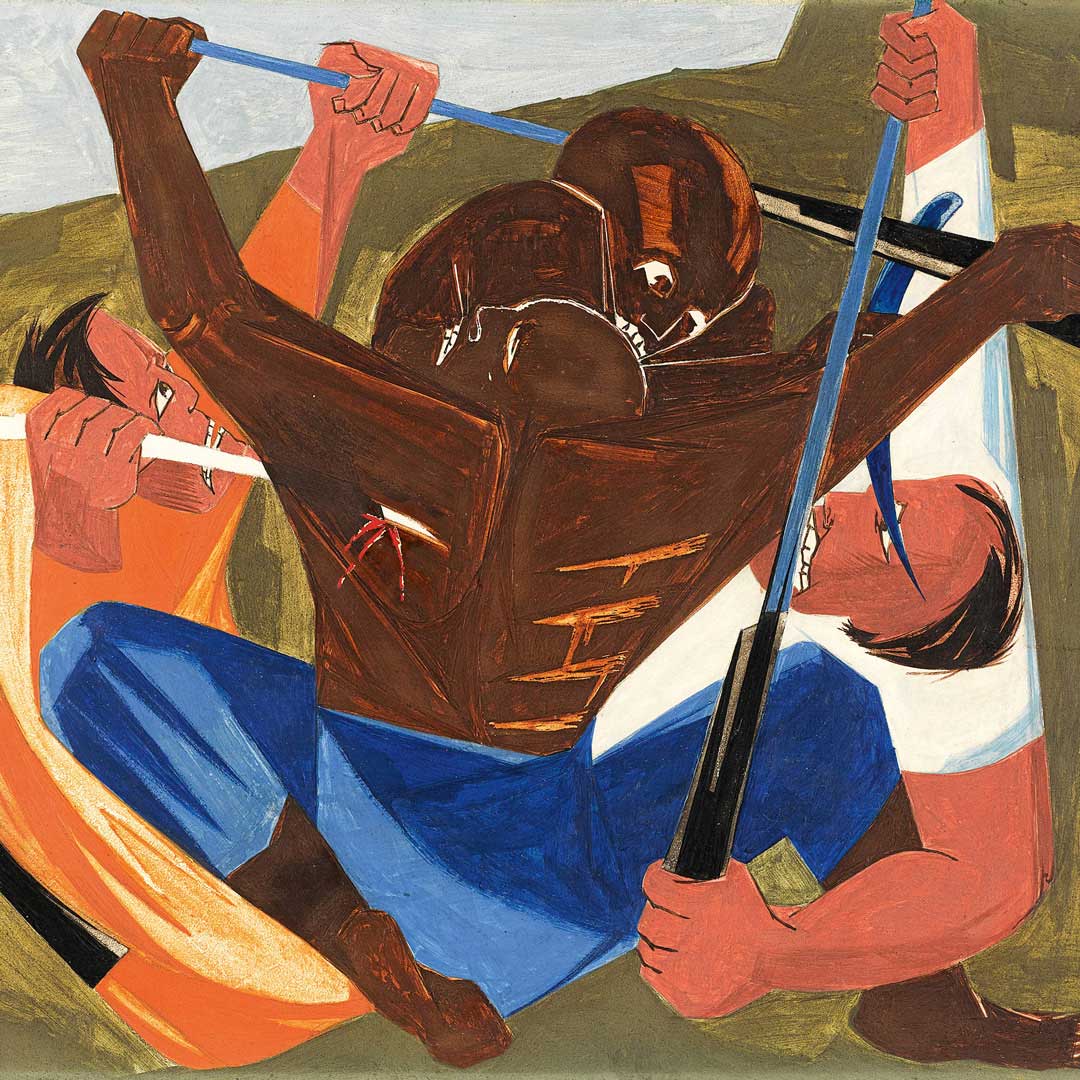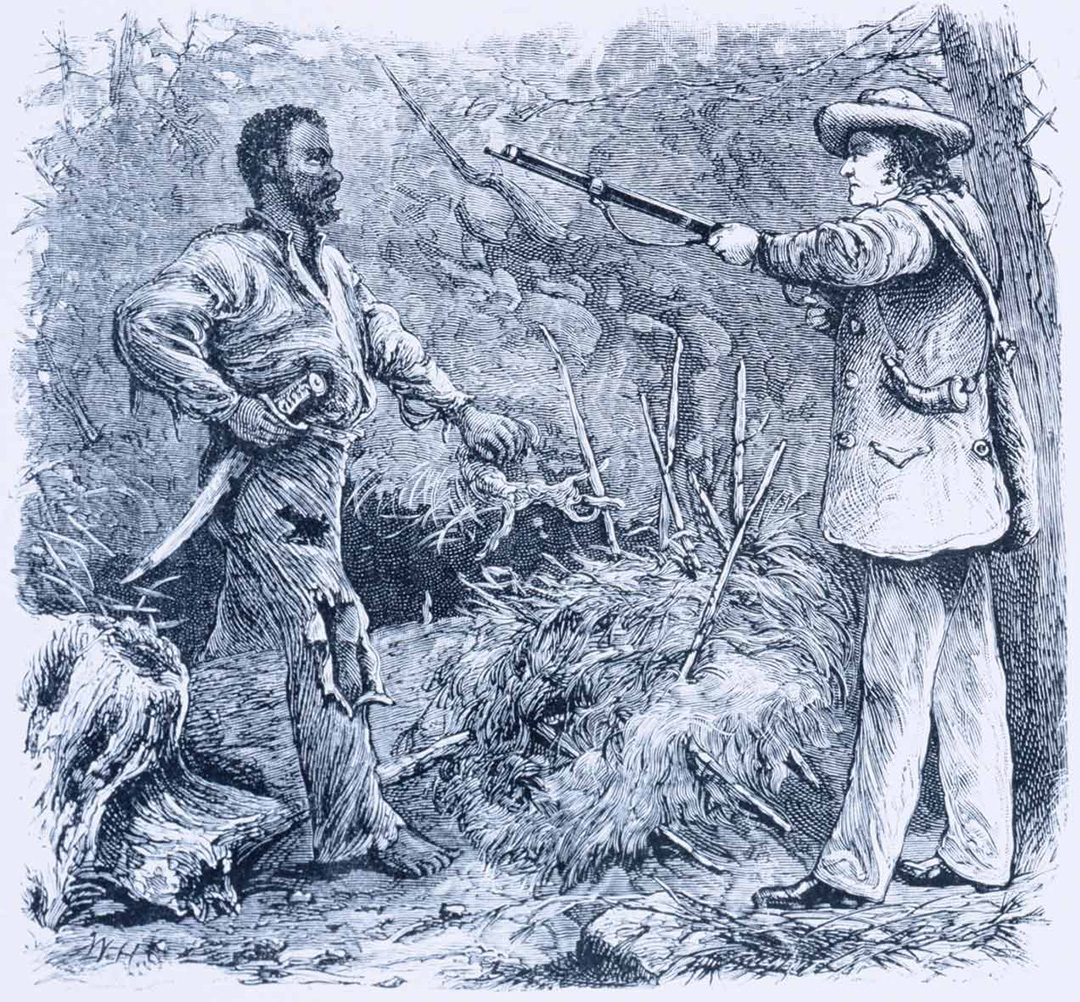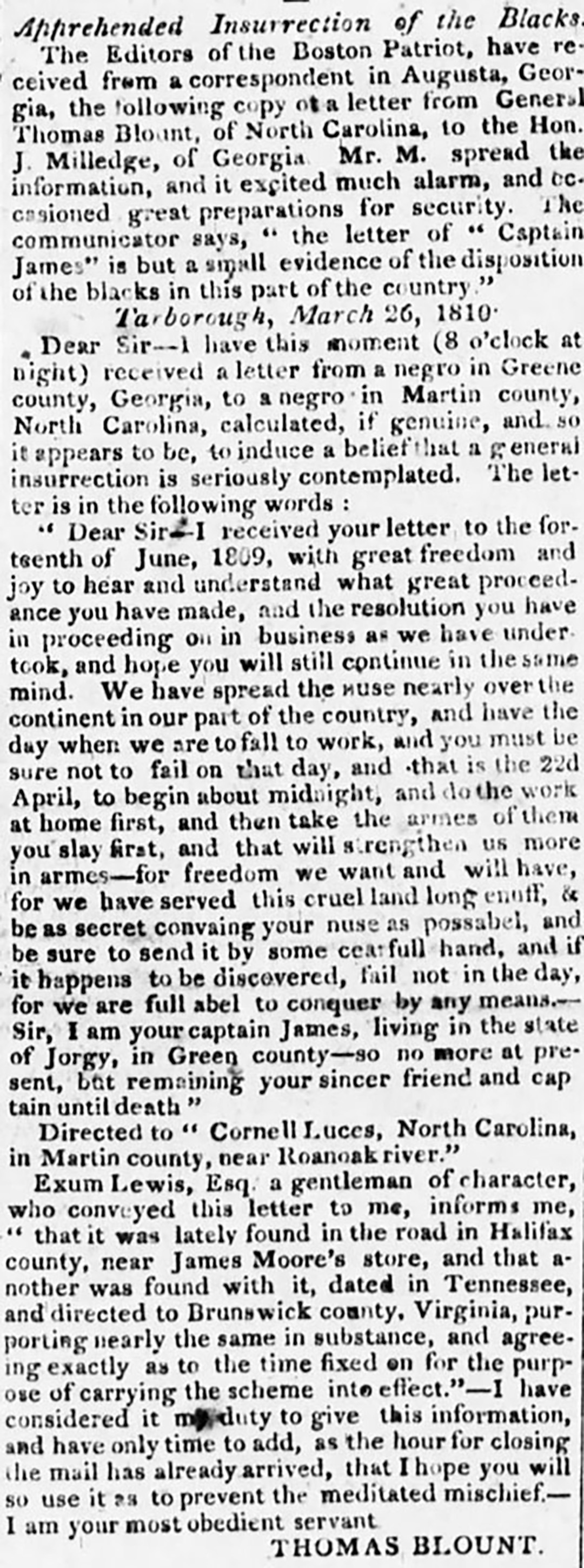Read Closer
Lawrence found the reference to this letter by Captain James, an enslaved man in Georgia, in Herbert Aptheker’s book American Negro Slave Revolts (1936). The letter was part of an exchange outlining logistics for a revolt planned for midnight on April 22, 1810, to liberate enslaved populations between Halifax County, North Carolina, and Greene County, Georgia. While discovery of the missive stopped the plan, it was published in the New-York Evening Post a week later.
Excerpt from Thomas Blount, “Apprehended Insurrection of the Blacks,” New-York Evening Post, April 30, 1810
Dear Sir — I received your letter to the fourteenth of June, 1809 with great freedom and joy to hear and understand what great proceedance you have made, and the resolution you have in pro-ceeding on in business as we have undertook, and hope you will still continue in the same mind. We have spread the sense nearly over the continent in our part of the country, and have the day when we are to fall to work, and you must be sure not to fail on that day, and that is the 22d. April, to begin about midnight, and do the work at home first, and then take the armes of them you slay first, and that will strengthen us more in armes — for freedom we want and will have, for we have served this cruel land long enuff, & be as secret convaing your nuse as possabel, and be sure to send it by some cearfull hand, and if it happens to be discovered, fail not in the day, for we are full abel to conquer by any means. — Sir, I am your Captain James, living in the state of Jorgy, in Green county — so no more at present, but remaining your sincer friend and captain until death
Thomas Blount, “Apprehended Insurrection of the Blacks,” New-York Evening Post, April 30, 1810


